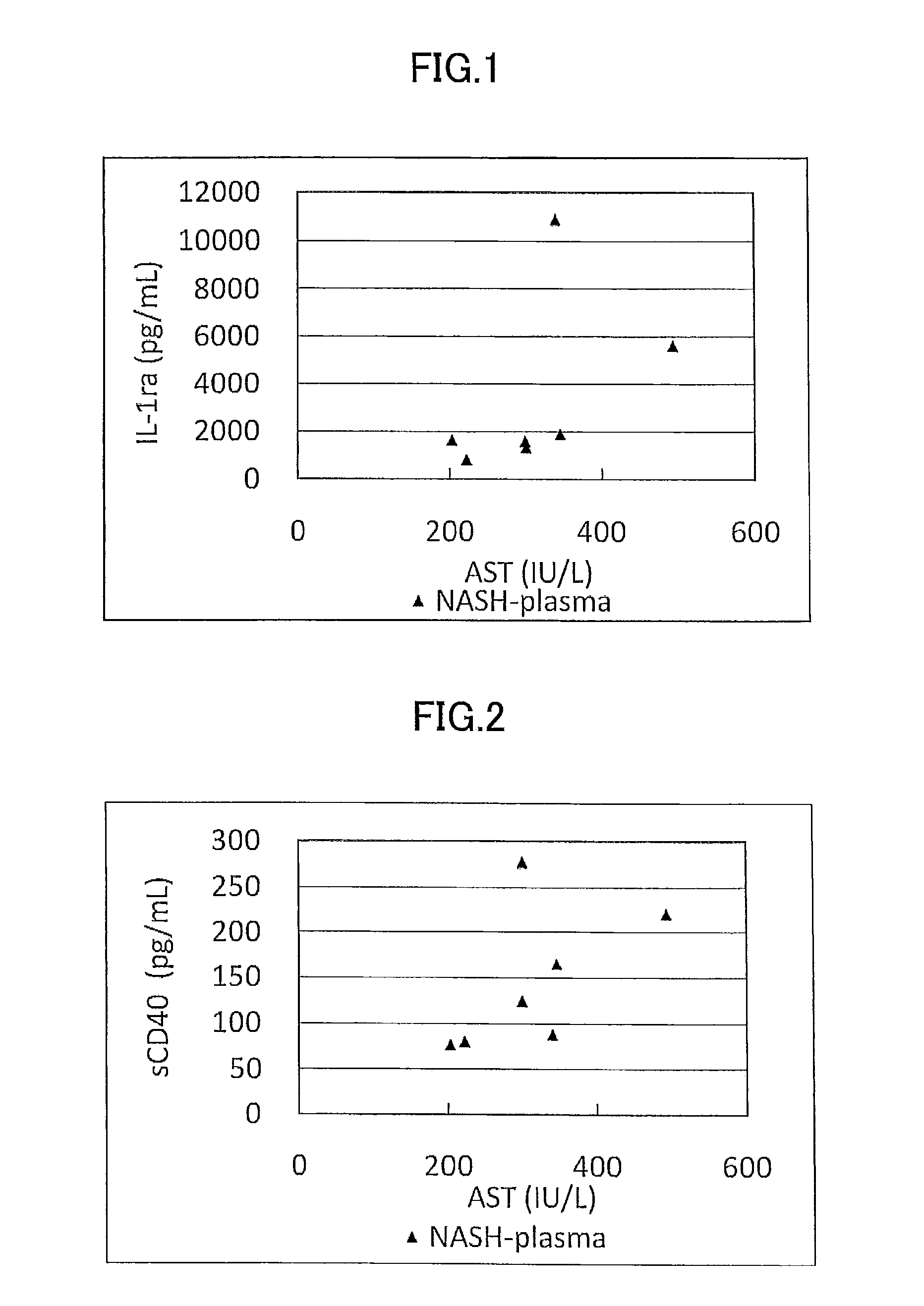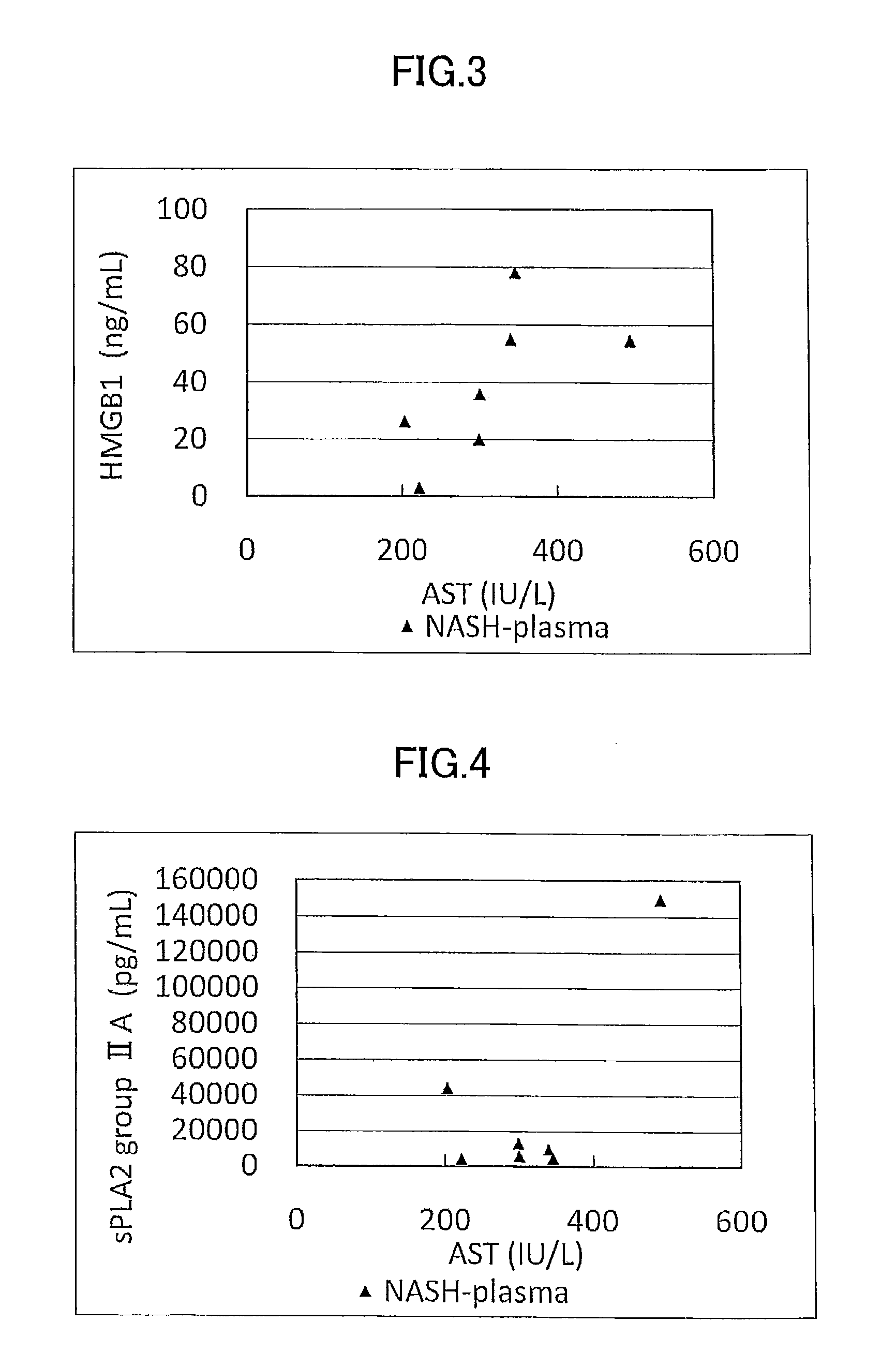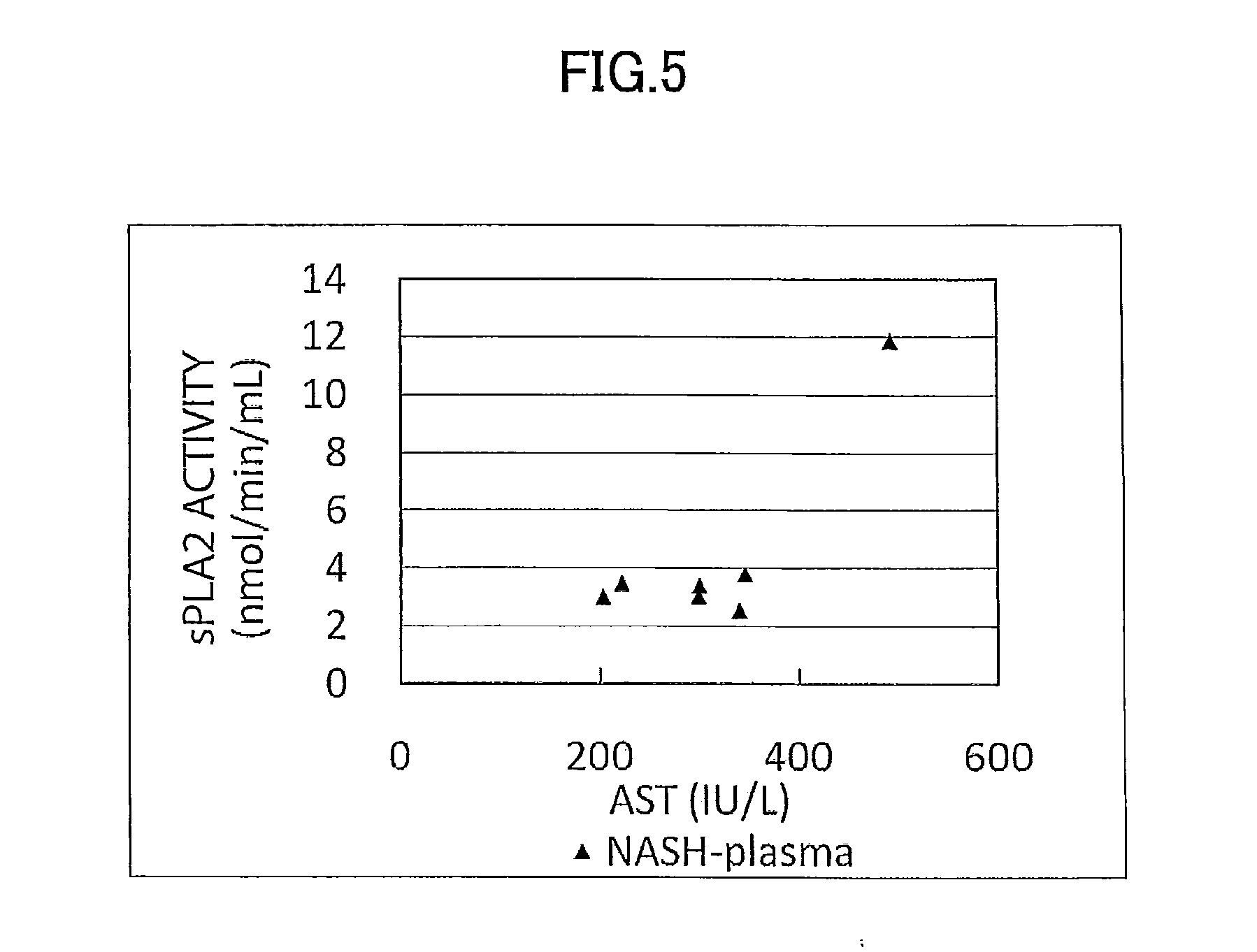Marker associated with non-alcoholic steatohepatitis
a non-alcoholic steatohepatitis and marker technology, applied in the field of non-alcoholic fatty liver disease or non-alcoholic steatohepatitis, can solve the problems of no established therapeutic method and clinical problems, and achieve the effect of reducing the burden of patients and convenient evaluation of therapeutic effects
- Summary
- Abstract
- Description
- Claims
- Application Information
AI Technical Summary
Benefits of technology
Problems solved by technology
Method used
Image
Examples
example 1
Confirmation Test of Human NASH Patient
[0178]Concentration as the amount of antigen of IL-1ra, sCD40, HMGB1, and sPLA2 group IIA as well as sPLA2 activity of plasma (7 specimens) from human NASH patients who have been diagnosed as having NASH by liver biopsy and plasma (10 specimens) from healthy subjects were measured and compared.
[0179]The measurement was conducted by using commercially available assay kits, namely, IL-1ra (Catalog No.: DRA00B; R&D Systems Inc., US), sCD40 (KT-003; KAMIYA BIOMEDICAL COMPANY, Seattle, Wash.), HMGB1 (326054329; Shino-Test Corporation, Japan), sPLA2 group IIA (585000; Cayman Chemical Company, US), and sPLA2 activity (765001; Cayman Chemical Company, US).
[0180]More specifically, IL-1ra was measured by (1) adding the specimen to a microplate having anti IL-1ra monoclonal antibody immobilized thereon to allow the reaction to proceed, and then, (2) adding a labeled polyclonal antibody for the reaction to proceed. Similarly, sCD40 was measured by using (1...
example 2
Selection of Candidates for the Second Marker
[0185]B6 mice (10 week old) were divided into control group (I), HF-HS group (II), and EPA group (III) (n=7 to 10), and the mice were raised for 20 weeks by free feeding of the following diet.
[0186]Group I: normal diet (F-1 without fish meal) (manufactured by Funabashi Farm)
[0187]Group II: high fat / high sugar diet (Harlan Laboratories)+5% ethyl palmitate (Wako Pure Chemical Industries)
[0188]Group III: high fat / high sugar diet (Harlan Laboratories)+5% EPA-E (Nippon Suisan Kaisha, Ltd.)
[0189]After raising for 20 weeks, fatty liver was observed in the group II, while the fatty liver was not observed in the groups I and III.
[0190]Liver was extirpated from the mice of each group, and RNA was extracted by homogenization to conduct gene microarray analysis of the liver. The genes were selected as described below.
[0191](1) Genes with group II / group I expression ratio of 2 or higher and group III / group II expression ratio of up to 1 / 2 were selecte...
example 3
Confirmation Test of Use of Second Factor on Human NAFLD Patients
[0200]Plasma concentration of each of factors described in Tables 2 and 3 is measured in human NAFLD patients and healthy subjects. The measurement may be conducted by using a commercially available assay kit or by using the corresponding antibody. If unavailable, the corresponding antibody may be prepared by the procedure as described above.
[0201]Concentration of thrombospondin 1 and complement factor D of Group (A) (Table 2) was measured for the plasma (3 specimens) from human NAFLD patients (excluding human NASH patients who have been diagnosed as having NASH by liver biopsy) and the plasma (10 specimens) from healthy subjects.
[0202]The measurement was conducted by using commercially available assay kits, namely, thrombospondin 1 (Catalog No.: DTSP10; R&D Systems Inc., US) and complement factor D (DFD00; R&D Systems Inc., US).
[0203]Thrombospondin 1 was measured by (1) adding the specimen to a microplate having an an...
PUM
| Property | Measurement | Unit |
|---|---|---|
| molecular weight | aaaaa | aaaaa |
| molecular weight | aaaaa | aaaaa |
| frequency | aaaaa | aaaaa |
Abstract
Description
Claims
Application Information
 Login to View More
Login to View More - R&D
- Intellectual Property
- Life Sciences
- Materials
- Tech Scout
- Unparalleled Data Quality
- Higher Quality Content
- 60% Fewer Hallucinations
Browse by: Latest US Patents, China's latest patents, Technical Efficacy Thesaurus, Application Domain, Technology Topic, Popular Technical Reports.
© 2025 PatSnap. All rights reserved.Legal|Privacy policy|Modern Slavery Act Transparency Statement|Sitemap|About US| Contact US: help@patsnap.com



